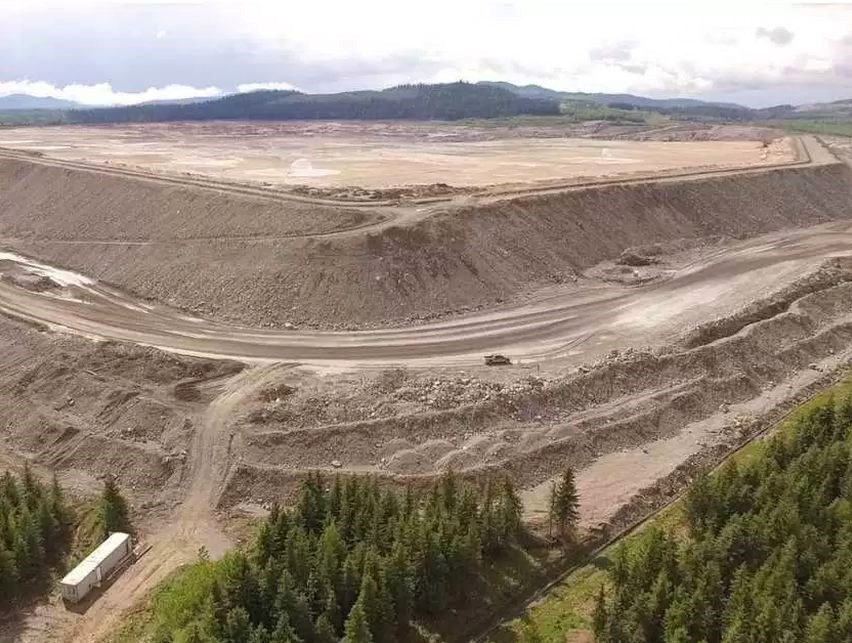Before the Mount Polley Mine disaster struck two years ago, our communities of Xat'sull First Nation and Likely lived in the reassurance from B.C. and the company that no such tragedy could ever happen. On Aug. 4, 2014, our lives and the landscape were changed forever, as the impacts of mining are forever.
Both our communities rely on the Quesnel Lake watershed for our way of life and economic prosperity. Yet the Mount Polley disaster--which sent 24 billion litres of contaminated process water and tailings into the lake--endangered all of that. The mine waste has moved well off of the mine footprint, and is loose within the Fraser River watershed.
Two years later, it is still unknown what the long-term effects will be, and numerous local families and businesses have suffered great losses and hardship. Many of us doubt we can be made whole again--by the mine or the province.
For example, previous to the disaster, harvesting and processing up to 200 salmon per Xat'sull family was at the heart of our food security, teaching our children about the land, and engaging in cultural practices such as trade and sharing with the less fortunate. Mount Polley responded to our ongoing concerns about contaminated salmon by delivering the equivalent of three tins of salmon per Xat'sull member last winter. The total lack of understanding and inadequate response - from a company who boasts excellent First Nations relationships- is stunning and revealing.
Likely and Xat'sull remain deeply concerned about water. After many months of local pressure to secure safe drinking water, the mine provided (inefficient) domestic water filters for Quesnel Lake homeowners. It continues to use an under-performing water treatment plant that discharges mine effluent to Quesnel Lake, has not finalized a long-term water management plan and recently asked the Ministry of Environment to relax water quality requirements at the water treatment plant. It has left local residents fuming. Have we really come to the point where wanting clean water makes us dissidents?
B.C. has not fined nor penalized the company for this disaster. Instead it granted hydro tax breaks--even as parent company Imperial Metals made a first quarter profit of $17.7 million for 2016. This was done with the full support of the B.C. Liberal government, which has benefitted financially from the donations of this company. Local businesses and residents have received nothing.
While the province announced some changes to the mining code in July, the updates are not strong enough to prevent another Mount Polley disaster. In 2015, the province's Mount Polley Independent Expert Review Panel estimated two massive tailings dam failures will occur every 10 years. The recent B.C. Auditor General's condemning report on mining in B.C. stated the obvious: mining self-regulation is not working and a thorough overhaul is required. Communities across the province are still at risk.
Xat'sull never gave consent to the re-opening of the mine, nor to the ongoing discharges into the lake. Our traditional economic system lives off the interest, not the principal, of the land, to ensure long-term security. Current extractive economies are unsustainable and spend the principal in less than a generation.
For more than 100 years, the Quesnel Lake watershed produced billions of revenue dollars for government and industry through tourism, logging and mining, and a once profitable Horsefly River sockeye salmon run. Downstream farmers, First Nations, and sport and commercial fishers also depend on the integrity of the Quesnel Lake watershed for their livelihoods. It's all connected.
The precedents being set now will impact future disasters and how they are addressed. We all must demand that health and safety be put before one company's profits, that sustainable economies be supported, and that local communities have decision-making powers over their own future.
Xat'sull and Likely know that it's easy to be good neighbours when you respect and understand each other. It's time for the mining industry and B.C. to act in the best interest of impacted communities and ecosystems, not just the bottom line.
- Richard Holmes is a biologist and a 42-year Likely resident who worked closely with Xat'sull in the aftermath of the Mount Polley Mine disaster. He is a member of Concerned Citizens of Quesnel Lake, and the Mount Polley Mine Corp. Public Liaison Committee.
Jacinda Mack is a Xat'sull member. Previously, she was the Natural Resources Manger for Xat'sull and was actively involved in the First Nations response to the Mount Polley Disaster. Currently, she is the coordinator of First Nations Women Advocating Responsible Mining , a coalition of women leaders advocating mining reform in BC.



